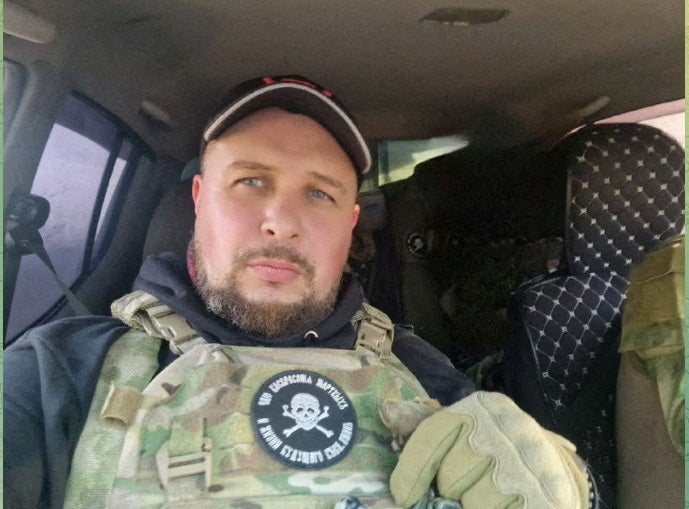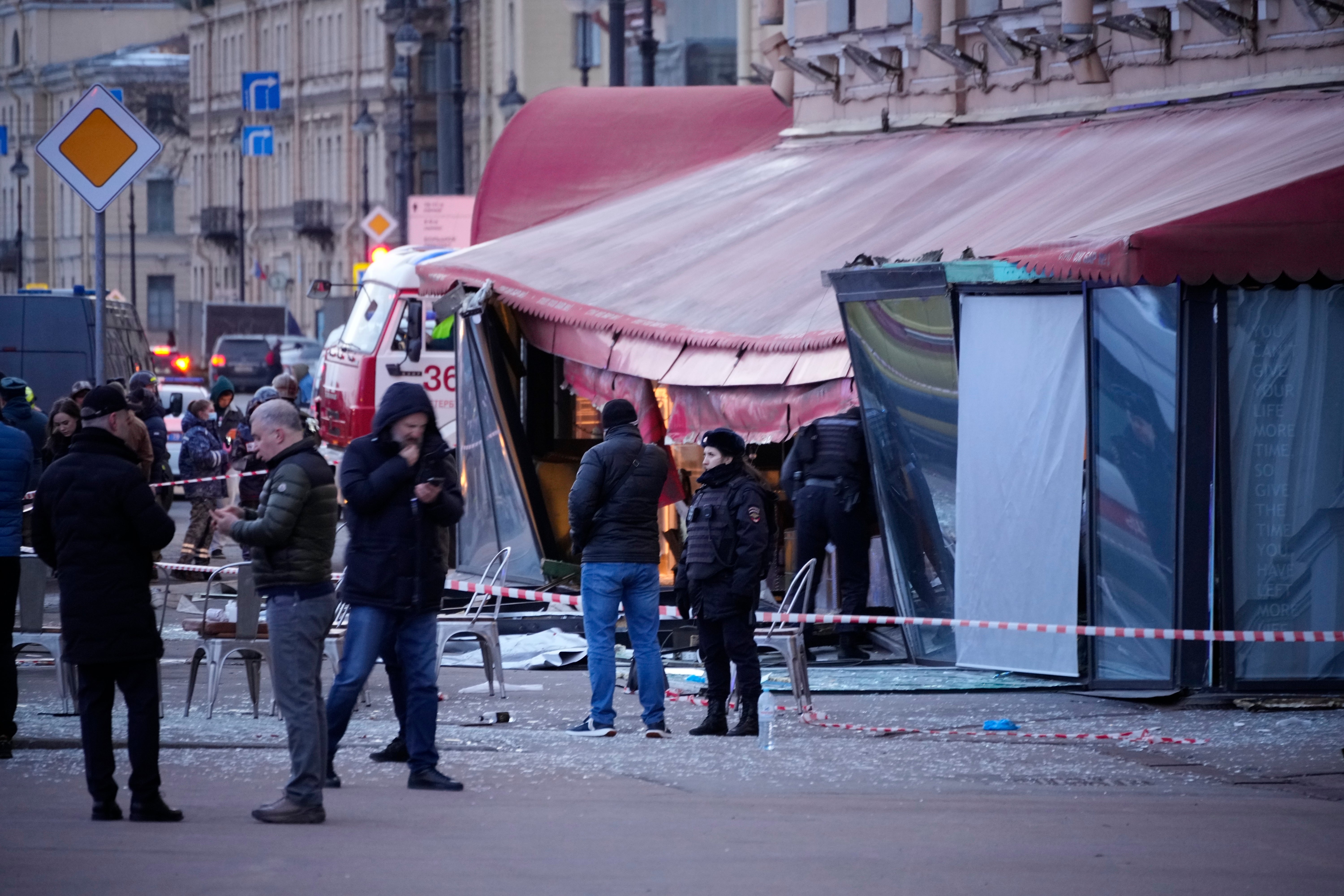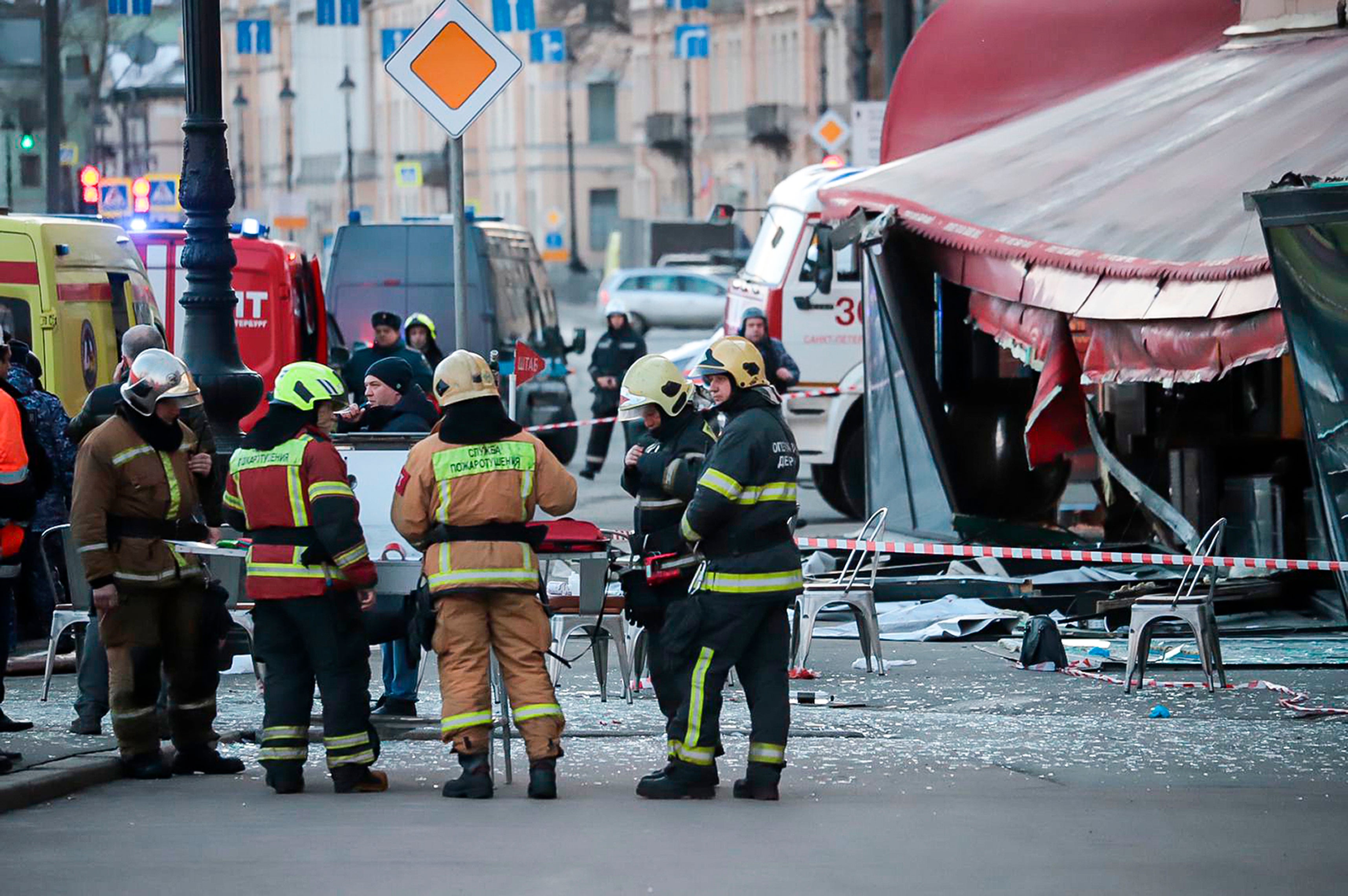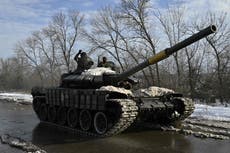Russian pro-Putin blogger killed in St Petersburg cafe blast
Vladlen Tatarsky, whose real name was Maxim Fomin, had more than 560,000 followers on Telegram
A pro-Putin military blogger was killed and 30 others injured in an explosion in a cafe in St Petersburg on Sunday, the TASS news agency reported.
Vladlen Tatarsky died as he was leading a discussion at the cafe on the bank of the Neva River in the historic heart of the city. Some reports said a bomb was embedded in a bust of the blogger that was given to him as a gift.
Russia’s Interfax news agency reported that a St Petersburg woman, Darya Tryopova, was arrested on suspicion of involvement in the bombing. It said that she had been previously detained for taking part in anti-war rallies.
Tatarsky, whose real name was Maxim Fomin, had more than 560,000 followers on Telegram and was one of the most prominent of the influential military bloggers who have provided an often critical running commentary on Russia's war in Ukraine.
Born in the Donbas, Ukraine’s industrial heartland, Tatarsky worked as a coal miner before starting a furniture business. When he ran into financial difficulties, he robbed a bank and was sentenced to prison. He fled from custody after a Russia-backed separatist rebellion engulfed the Donbas in 2014, weeks after Moscow’s annexation of Ukraine’s Crimean Peninsula. Then he joined separatist rebels and fought on the front line before turning to blogging. Tatarsky was known for his blustery pronouncements and ardent pro-war rhetoric.

He was among hundreds of attendees at a lavish Kremlin ceremony last September to proclaim Russia's annexation of four partly occupied regions of Ukraine, a move that most countries at the UN condemned as illegal.
“We'll defeat everyone, we'll kill everyone, we'll rob everyone we need to. Everything will be as we like it,” he was shown saying in a video clip on that occasion.
A St Petersburg website said the explosion on Sunday took place at a cafe that had at one time belonged to Yevgeny Prigozhin, founder of the Wagner private army that is fighting for Russia in Ukraine. There was no indication who was behind the blast.
If Tatarsky was deliberately targeted, it would be the second assassination on Russian soil of a high-profile figure associated with the war in Ukraine.

Russia's Federal Security Service accused Ukraine's secret services last August of killing Darya Dugina, the daughter of an ultra-nationalist, in a car bomb attack near Moscow that President Vladimir Putin called “evil”.
Denis Pushilin, the Moscow-installed leader of the part of Ukraine's Donetsk province that is occupied by Russia, suggested publicly that Ukraine was to blame.
“He was killed vilely. Terrorists cannot do otherwise. The Kyiv regime is a terrorist regime. It needs to be destroyed, there's no other way to stop it,” he said. Ukraine denied involvement.
Retired Air Vice Marshall Sean Bell told Sky News there is not enough detail to suggest who was behind the incident, but feels it would be “unlikely” the Ukrainian government was involved.
Following the blast, Mykhailo Podolyak, adviser to Volodymyr Zelenskyy, said on Twitter that the “spiders are eating each other in a jar”, suggesting Russia is facing a troubled time because of its invasion.
Russia's war bloggers, an assortment of military correspondents and freelance commentators with army backgrounds, have enjoyed broad freedom from the Kremlin to publish hard-hitting views on the war, now in its 14th month. Mr Putin even made one of them a member of his human rights council last year.
“He was in the hottest spots of the special military operation and he always came out alive. But the war found him in a Petersburg cafe,” said Semyon Pegov, who blogs under the name War Gonzo.
Alexander Khodakovsky, a leading pro-Moscow figure in eastern Ukraine, wrote: “Max, if you were a nobody, you'd have died of 'vodka and headcolds'. But you were dangerous to them, you did your business like no one else could. We will pray for you, brother.”
It comes as Russian foreign minister Sergei Lavrov told US secretary of state Antony Blinken it was unacceptable for Washington to politicise the case of Wall Street Journal reporter Evan Gershkovich, who has been detained and accused of spying in Russia.

Mr Blinken called for the immediate release of the US journalist during the telephone call with Mr Lavrov on Sunday, the US State Department said.
“Secretary Blinken conveyed the United States' grave concern over Russia's unacceptable detention of a US citizen journalist. The secretary called for his immediate release,” US State Department principal deputy spokesperson Vedant Patel said in a statement that did not mention Mr Gershkovich by name.
Join our commenting forum
Join thought-provoking conversations, follow other Independent readers and see their replies
Comments


Bookmark popover
Removed from bookmarks